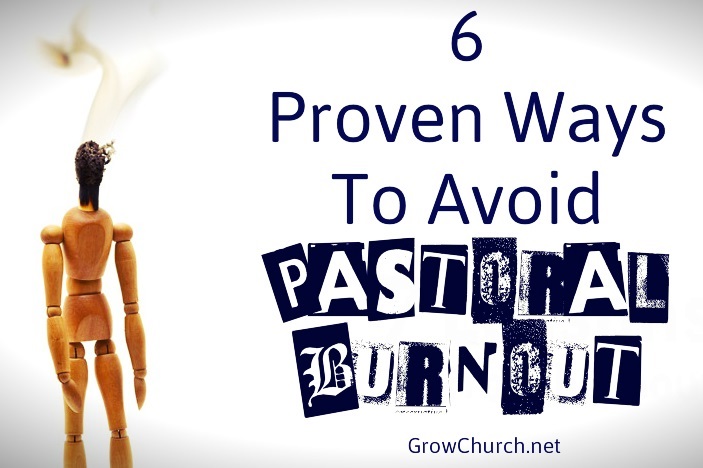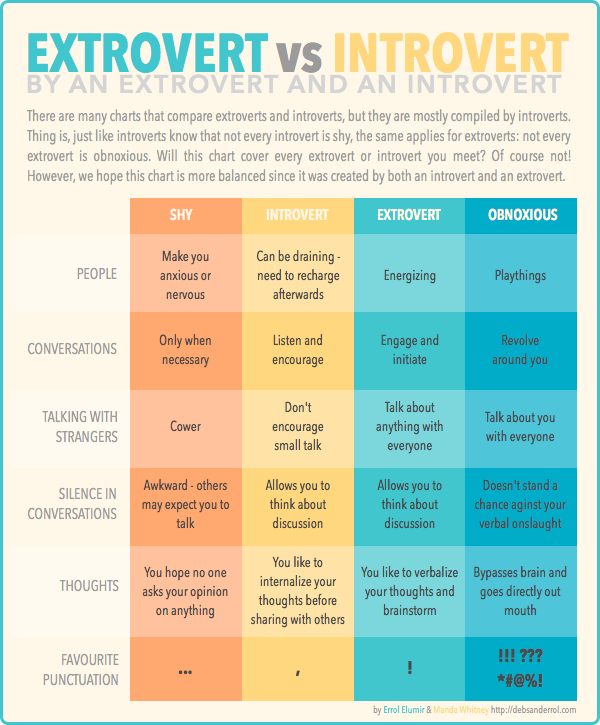 Last Update 11th October, 2016.
Last Update 11th October, 2016.
Being a pastor and working for the church is (probably) the best job in the world.
There’s no greater fulfillment than seeing people respond to God, grow in their giftings and discover their life purpose.
If every vocation was ranked by order of satisfaction, I’m sure pastoring would be at the top of the list.
For you and I, pastoring is more than a preferred profession or career choice; it’s a divine calling.
We pour out our heart and soul, we serve with everything we have because we believe that the church is the hope of the world.
Everything we do us to advance the kingdom and glory of God.
Sometimes in working for the church we can easily feel the pressure to keep on giving regardless, even to the detriment of our marriages, family and health.
Burning the candle at both ends for too long can lead to what we call in the pastoring world ‘pastoral burnout’ and it effects most of us at some point of our lives.
And yet, for many, pastoral burnout is still a taboo topic, a dark secret…
The purpose of this article is to equip and support pastors by providing some facts and statistics relating to pastoral burnout, including looking at the causes and how to spot the early signs and symptoms of burnout.
Most importantly, we aim to help reduce the number of burnout casualties by giving you five tried and tested ways to avoid pastoral burnout.
Burnout:
- the condition of someone who’s become very physically and emotionally tired after doing a difficult job for a long time.
- the time when a jet or rocket engine stops working because there is no more fuel available.
For each of us pastoral burnout shows itself differently.
Some of us might go through a prolonged period of depression, not feeling motivated to do anything.
Others might be stressed by the overwhelming pressure to perform.
It could be you’ve experienced a personal betrayal that delivers the final crushing blow and now you’re not quite sure how you can recover from it.
However it manifests, you know it when you feel it; the sinking feeling, the brick wall we can’t just seem to get past, knowing our heart is not in the right place but unsure how to get it back to where it should be.
A church leader spoke almost in a painful whisper, “I want to love ministry again.”
I felt the agony in his voice as years of being encumbered by politics and pressure to perform had replaced the fiery passion that once transformed his life into a beacon of hope.
He sat behind his desk in an office full of people yet he felt isolated, disgusted and tired.
Have you ever felt this way? You are not alone.
Pastoral Burnout: The Shocking Statistics
 Tragically, pastoral burnout effects more pastors and church leaders than you might like to imagine.
Tragically, pastoral burnout effects more pastors and church leaders than you might like to imagine.
In 2005 and 2006 a research team on behalf of the Francis A. Schaeffer Institute of Church Leadership Development interviewed 1,050 American pastors.
Here are some of the findings:
- 100% of those surveyed had a close associate or seminary buddy who had left the ministry because of burnout, conflict in their church, or from a moral failure.
- 1,500 pastors per month in the US leave the ministry due to burnout.
- 80% of pastors admit to feeling unqualified and discouraged.
- 50% of pastors want to leave the ministry but have nothing to go to.
- A massive 72% of pastors consistently fight depression.
- 80% of seminary and Bible school graduates will leave the ministry within the first five years.
- 80% percent of pastors’ spouses wish their spouse would choose another profession.
- 89% of those asked had considered leaving the ministry at one time. 25% of church pastors don’t know where to turn when they have a family or personal conflict or issue.
And here are just a few more shocking stats:
- 33% of pastors have felt burned out within their first five years of ministry.
- 33% say that being in ministry is an outright hazard to their family.
- 40% of pastors and 47% of spouses are suffering from burnout, frantic schedules, and/or unrealistic expectations.
- 45% of pastors’ wives say the greatest danger to them and their family is physical, emotional, mental, and spiritual burnout.
- 45% of pastors say that they’ve experienced depression or burnout to the extent that they needed to take a leave of absence from ministry.
- 50% feel unable to meet the needs of the job.
- 56% of pastors’ wives say that they have no close friends.
- 90% work more than 50 hours a week.
- 75% report severe stress causing anguish, worry, bewilderment, anger, depression, fear, and alienation.
The most distressing aspect of these numbers is the heartbreak they expose: marriages, families and lives struggling to keep their heads above water.
Let us not forget also, the congregations who feel disillusioned and confused when their pastor drops out of the ministry due to burnout.
Although these statistics reveal the enormous pressure pastors and church leaders feel, it doesn’t have to be like this; there is a better way.

Pastoral Burnout: The 7 Creeping Causes
Thom Rainer is a church leader and Christian author who has written on the possible causes of pastoral burnout (see thomrainer.com).
He has spoken to countless pastors over the years and has seen first hand, the reasons why so many church ministers are in crisis.
He lists the following 7 causes as being the most prevalent in creating the hazardous church culture which he believes leads to so many pastors burning out:
1. The 24/7 mentality. There are always those days when it seems like the pastor’s job is never finished. There’s no clocking out time; we’re constantly on call.
2. Conflict. Church politics and interpersonal strife weigh heavy on the heart and mind of the pastor. People with their own agendas cause the most conflict within churches.
3. Expectations. Unrealistic expecatations place too heavy a burden on people-pleasing pastors. If we’re not careful we’ll run ourselves to the ground trying to keep our staff and members happy.
4. Unwillingness to let go. Have you heard thought to yourself ‘”It’ll just be better if I do it myself”? The inability to entrust tasks and responsibilities to others can be crippling.
5. No friends. Due to long hours and absence of any social time (even with your own family) can cause a pastor to feel extremely isolated as he always giving out and listening to others whilst having no one to listen to him.
6. Not suited for some tasks. Many pastors waste valuable time struggling with tasks which are not part within their remit of giftings, leading to frustration.
7. No life outside the church. All work and no play. Hobbies are a great way to wind down and relieve tension but if every living moment is consumed with the work of the church then the question of pastoral burnout is when, not if.
Pastoral Burnout: The Seven Symptoms
 We all know prevention is always better than the cure. The same is true with pastoral burnout.
We all know prevention is always better than the cure. The same is true with pastoral burnout.
There are some very clear early warning signs which if we are vigilant in looking out for, will greatly reduce the risk in perspectives that would lessen the risk of burnout.
Sometimes we can an empty heart, we can be running on empty and not know it.
Maybe we can get away with running on empty for a week or so, but not for too long.
Here are 7 symptoms you could be heading to burnout crisis point:
1. An inability to celebrate and enjoy what I’m doing. Do you have fun?
2. A lack of clarity in hearing from God. What’s your worship like? Your Bible reading? Prayer life?
3. Impatience and insensitivity when dealing with people. The Bible says that when Jesus saw the crowds he had compassion. What do you see when you see people in your church? A good opportunity for a offering, a photo shoot?
4. Depression and self-loathing when I’m not performing as well as I should. What are you like when you haven’t preached as good as you could have? Do you beat yourself up over the head. Remember: Do you best and God will do the rest.
5. Anger and frustration when things don’t turn out.
6. An inability to feel deep emotions. Are you desensitised to the world around you? Can you get excited about the vision God has give you and your church?
7. A visible lack of passion for what I’m doing. Has your ‘get up and go’… gone?
I think it’s inevitable for all of us to experience one or more of these symptoms at times, but be careful; if too may of these pile up you could be leading to pastoral burnout.
6 Proven Ways to Avoid Pastoral Burnout
You do not have to hit a crisis point in your ministry, you can avoid being labelled a burned out pastor.
There is a solution: simply by learning how to recognise the early signs of burnout and then, realising you’re running on a tank close to empty, take action.
“Make self-care important if you want to have longevity in ministry.” [Tweet this]
1. Avoid pastoral burnout by knowing the strengths I’ve been given.
 One of the best ways to avoid pastoral burnout is to figure out how you’re wired, knowing your hardware.
One of the best ways to avoid pastoral burnout is to figure out how you’re wired, knowing your hardware.
Realising how you’re built empowers you to lead from a place of strength.
God made all us differently. God gave all of us gifts – none have all but all have some.
Avoid pastoral burnout by playing to your strengths.
Perhaps you’re great at administration, supporting people in crisis, inspiring others to greater things, musicianship, organising outreach events, teaching children, building maintenance, mentoring youth, cooking for lots of people, PA and sound control, coaching a sports team, making the Bible easy to understand, website design, welcoming and hosting…
Find and focus on your strengths. Plus your strengths, manage your weaknesses.
Play to your strengths and you’ll enjoy what you do.
“Having then gifts differing according to the grace that is given to us, let us use them…” Romans 12:6
2. Avoid pastoral burnout by sharing my workload
 Instead of spending 10 hours being frustrated trying to do something you’re not gifted at, why not see if you can delegate that to someone who is more adept?
Instead of spending 10 hours being frustrated trying to do something you’re not gifted at, why not see if you can delegate that to someone who is more adept?
Avoid frustration and give opportunity to others to grow in their giftings at the same time.
Try this exercise: Write down all the weekly jobs you do.
Now ask yourself “What’s the 5% only I can do?”
Delegate the other 95%. Your time is very limited. Working smarter is wiser than trying to work harder.
The chances are, your church staff and volunteers are more than happy to lighten your load.
Learn how to get more people in your church to step up and volunteer here.
Too often we struggle trying to accomplish a job alone when church members should be more involved.
If a congregation is accustomed to hand holding, gently wean them off.
Share the vision, create a plan, and move them toward that goal.
Start a servolution in your church.
Doing too much yourself can limit your effectiveness and the potential of the church ministry as a whole.
Let’s take sermon preparation as an example. Why do we isolate ourselves in our studies with the weight on the world on our shoulders trying to come up with inspiring, creative original and profound sermons week after week?
Take the pressure off and prepare sermons as a team and raise other preachers up in the process.
As I look back, one of my greatest regrets is not spending more time with Christians in a one to one coaching relationship and in focused groups helping them to grow and fulfill their calling as disciples.
We all need coaching and personal accountability to help us to stay effective and healthy.
I am encouraged to see more emphasis being given to mentoring and coaching and believe that it will be one of the defining features of churches in the future.
Making sure people and resources are in the right place will go a long way to saving time and improving efficiency.
“You are Christ’s body—that’s who you are! You must never forget this. Only as you accept your part of that body does your “part” mean anything.” (1 Cor 12:27 The Message)
3. Avoid pastoral burnout by knowing the temperament I possess.
Are you in an introvert or an extrovert? How do you recharge?
Introvert = phone battery.
Introverts need to go inside to recharge and replenish their reserves just like a mobile phone battery needs to be plugged in to recharge.
Extrovert = solar panels.
Extroverts on the other hand recharge are like solar panels; they need to go outside to charge. Extroverts feel refreshed after being around people, going to conferences, by bouncing ideas around in a group.
Knowing how you’re wired empowers you to know how to refresh yourself and recharge your batteries.
If you’re an introvert and you know you’re heading towards a burnout, what’s the best thing you can do?
Take a retreat for a few days every 3 months.
You need seclusion and quiet, time to reflect and evaluate, to sit, read and ponder.
To an extrovert, seclusion is solitary confinement, but for an introvert is the ultimate relaxing haven.
If you’re extrovert and you know you’re heading towards a burnout, what’s the best thing you can do? Go to a seminar, a leadership conference. Meet new people, exchange ideas, go on a team building exercise.
Conversely, for an introvert, this is work and it’s draining. It depletes their energy instead of nourishing it, but for an extrovert this is energising, exciting and envisioning.
4. Avoid pastoral burnout by giving myself a break
As obvious as this sounds, you need to schedule breaks. You know what it’s like: there’s always things cropping up – if you don’t prioritise rest times and put them on the your calendar, they won’t happen.
You must take some time off.
Even if that means vacating the church office for a couple weeks a year to readjust and envision yourself for the year ahead.
You’re no use to anyone if you’re exhausted and cranky.
Those are sure symptoms of ministry burnout. You can avoid them by simply taking a few days off a year.
 Do you have a regular day off in the week with no meetings or appointments?
Do you have a regular day off in the week with no meetings or appointments?
You need it.
Protect and guard it – it’s what will keep you going for the long-term.
Take a break to spend some fun time with your family. Take your spouse on a romantic holiday. Take break to make sure you and God are still intimately intertwined.
Note to all single pastors: Do not allow your singleness to be an excuse for church members to run your life or run you ragged. You must take a break to be refreshed and rejuvenated.
5. Avoid pastoral burnout by finding my fuel
“So, as much as is in me, I am ready to preach the gospel to you who are in Rome also.” Romans 1:15
“A good man out of the good treasure of his heart brings forth good things, and an evil man out of the evil treasure brings forth evil things.” Matthew 12:35
Fact: My ability to effectively lead on the outside is directly related to my level of fullness within.
How do you stay full and avoid pastoral burnout?
Determine that you will lead with a healthy heart. Keep an eye on your vital signs and take necessary steps to bring your heart right back to where it should be.
What do I need to fill my tank?
When you’re at the petrol station you want to make sure you fill up with the right fuel.
Any errors could adversely affect your engine’s performance. The same is true with your heart…
You already know you need to regularly connect with God who is the source of your strength, the True Vine and the one who sustains you and upholds you with His strong right hand.
So how do you connect with Him?
The truth us, all of us connect with God in different ways.
Some of us soar into the heavens when dancing and praising along to a worship song, others float into the upper stratosphere whilst trekking out in the mountains.
Gary Thomas wrote a book Sacred Pathways, in it he talks about how we all feel close to God in different ways.
Find out how you best connect with God by taking the Pathways quiz here.
 Relational – I connect best to God when I am with other.
Relational – I connect best to God when I am with other.
Intellectual – I connect best to God when I am learning.
Worship – I connect best to God when I am lost in worship.
Activist – I connect best to God when I am doing great things.
Contemplative – I connect best to God in solitude and silence.
Serving – I connect best to God when completing Kingdom tasks.
Creation – I connect best to God when I am in nature.
6. Avoid Pastoral Burnout by Talking To Someone
 Pastors need someone to talk to too.
Pastors need someone to talk to too.
And you don’t have to wait ’til you get to a crisis point either…
Many pastors burnout due to an overwhelming sense of isolation and loneliness.
You should never let yourself get this far.
People forget that before you are a pastor, you are indeed a human. We all need people to offload and yes, even complaint to.
Personally, I have people in my life, friends and mentors who I can laugh with, share things with and exchange ideas. I have people I can talk to who are not in my church or connected with my organisation.
I think it’s easier to be more open and honest about things when you know the person you’re talking to is completely detached from the situation.
If you don’t have this safety network in your life, find like-minded friends and fellow pastors you can call when you just fancy a chat over a cup of coffee.
You’ll be better for it.
What do you think?
So there you have it! Six proven ways to avoid pastoral burnout.
Can you imagine how much more empowered you would feel if you played to your strengths, how much more refreshed and alive you’d feel if you learned to schedule breaks and refresh yourself in the right way?
What would happen if your church people really started to step up and serve in new ways?
How much more fulfilled would you enjoying an ever closer and more life-giving relationship with the one you went into ministry for in the first place?
How much stronger would you be knowing you have brothers or sisters in the ministry you can walk this journey called life with?
My hope is that you’ve found some points listed here helpful.
Feel free to share this article with other pastors and leaders you know so that no one has to suffer burnout in silence.
Let’s end the taboo once and for all and support one another.
I’ll leave you with this advice given to Moses for his wise father-in-law Jethro:
“This is no way to go about it. You’ll burn out, and the people right along with you. This is way too much for you—you can’t do this alone. Now listen to me. Let me tell you how to do this so that God will be in this with you.” (Exodus 18:17)
Have you ever suffered from burnout? How can pastors avoid burning out? Please share your insights on this important issue in the comments below.
thanks for these helpful and inspiring tips. May God bless you